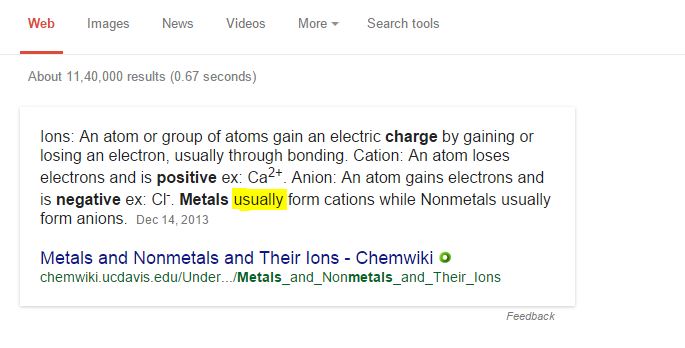Normal metals like sodium or Calcium have a positive charge as $\ce{Na}^+$ or $\ce{Ca}^{2+}$. Transition metals have a loot of variable oxidation states.
Yesterday I read about Iridium in Wikipedia and it stated that
a +9 oxidation state has been found in $\ce{IrO_4^+}$
which is astounding for me...
So i was thinking can metals have a net negative charged ion also?
According to GoogleGoogle :

Ions: An atom or group of atoms gain an electric charge by gaining or losing an electron, usually through bonding. Cation: An atom loses electrons and is positive ex: $\ce{Ca^2^+}$. Anion: An atom gains electrons and is negative ex: $\ce{Cl-}$. Metals usually form cations while nonmetals usially form anions. [source: chemwiki UCDavis]
Since it is written that metals USUALLY have positive charges which means there may be conditions or compounds when they have negative charges too. Is it possible?
Also can Noble gassesnoble gases form ions too?
